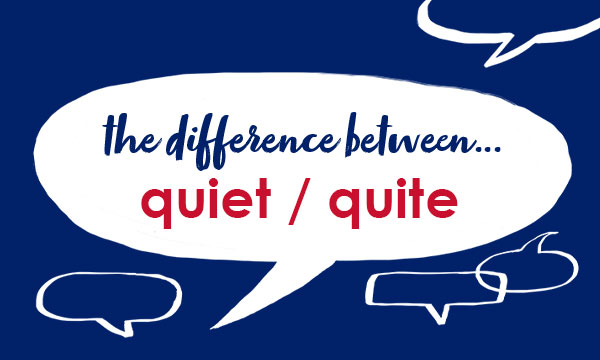This week we are looking at two words which are sometimes confused by learners of English: quiet and quite.
quiet

Quiet is an adjective. Someone or something that is quiet makes only a small amount of noise.
Bal said in a quiet voice, `I have resigned.’
The airlines have invested a lot of money in new, quieter aircraft.
If a place is quiet, there is very little noise there.
It was very quiet there; you could just hear the wind moving in the trees.
quite

Don’t confuse quiet /ˈkwaɪət/ with quite /kwaɪt/. You use quite to show that something is the case to a fairly great extent.
He was quite a long way away, on the rocks.
Find out more in our English Usage article.
This blogpost is based on Collins COBUILD English Usage, written for learners of English. For more examples of English usage points, please visit: https://grammar.collinsdictionary.com/english-usage.
All opinions expressed on this blog are those of the individual writers, and do not necessarily reflect the opinions or policies of Collins, or its parent company, HarperCollins.



